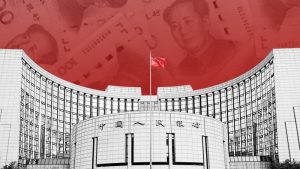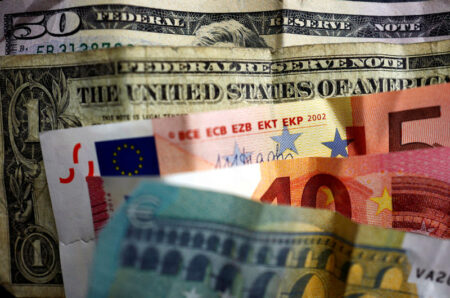By Gayatri Suroyo and Fransiska Nangoy
JAKARTA (Reuters) -Indonesia’s President Joko Widodo launched measures on Tuesday to support growth in Southeast Asia’s largest economy, after assuring businesses that the rupiah’s recent rate of depreciation against the dollar was still “safe”.
Economic growth is expected to slow this year in the resource-rich nation as exports slump on falling commodity prices and weakening global trade, while staples such as rice become more expensive for Indonesians grappling with drought.
In a statement, the presidential office said the government would scrap the value added tax (VAT) of 11% on purchases of homes worth less than 2 billion rupiah ($126,000) until June 2024, after which it will be halved for an unspecified time.
The government will also extend by a month to December its programme of distributing rice to more than 21 million lower-income households, it added, an effort meant to shield against rising prices of the staple.
Speaking to investors at a seminar earlier on Tuesday, Jokowi, as the president is popularly known, warned of the potential for oil prices to soar due to escalating conflict in the Middle East and capital outflows linked to U.S. monetary tightening, which could affect Indonesia’s economy.
“If we see the percentage of the depreciation of our currency, it’s still safe for the real sector, safe for the financial sector, as well as for inflation,” he said.
The rupiah has dropped by as much as 4.7% from a peak in early September, pressured by risk-off sentiment among investors, and leading Indonesia’s central bank to unexpectedly raise interest rates last week.
Some economists say more hikes are likely if the slide continues.
Although the currency strengthened as much as 0.66% on Tuesday to trade at 15,825 against the dollar, it stayed near its weakest levels since 2020.
“We have to be calculative and prepare for the long run,” the president said.
He added that his national budget had the endurance to withstand shocks until 2024, as the finance ministry held cash of 616 trillion rupiah ($38.84 billion) by Oct. 13.
The government plans cash transfers to millions of homes to cope with rising food prices, media said, citing chief economic affairs minister Airlangga Hartarto. However, a ministry spokesperson did not respond to a request for confirmation.
Prices of key food items such as rice, sugar and chili have risen as drought shrivels harvests in Indonesia in the year of an El Nino weather pattern, even though headline inflation remains low.
($1=15,845.0000 rupiah)
Read the full article here












